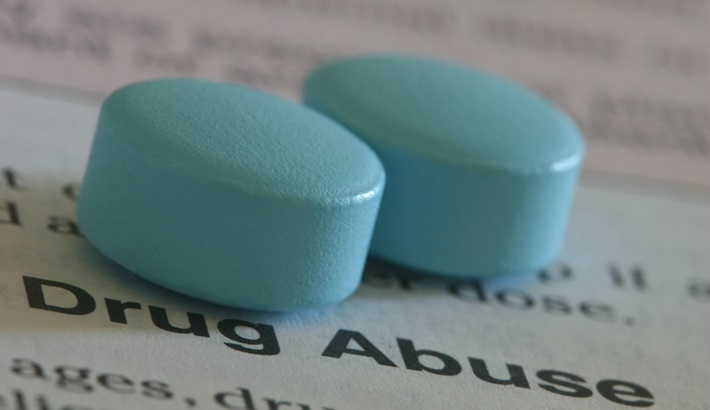Methadone is a narcotic that has been prescribed as pain medication or to help wean addicts off of other narcotics. Methadone’s effectiveness in getting people off heroin has made it the preferred drug for treating addictions, and it has become increasingly easy to find on the streets. While Methadone can be an effective way to treat addiction, there is an extensive list of serious side effects and withdrawal symptoms. The severity and length of these symptoms can vary depending on the person’s use history, with some people experiencing more intense or longer withdrawals.
This article discusses Methadone withdrawal symptoms, both short-term and long-term, as well as treatment options such as medications and therapy.
How Does Methadone Work?
Methadone and other synthetic narcotics such as heroin are opioids. That means that they bind to opioid receptors in the brain, stimulating pain relief. But unlike opiates, Methadone does not produce euphoria and it doesn’t slow down breathing like pain relievers like OxyContin or Vicodin.
How Is It Abused?
Another difference between opioids and opiates is that synthetic narcotics are much longer-acting. This makes medications like Methadone more likely to be abused because they can cause drowsiness and higher tolerance, which lead to addiction.
Methadone pills come in two forms: time-released and instant release. Instant release Methadone hits the system quickly and causes intense symptoms of withdrawal. Time-released Methadone is released more slowly, which makes it easier to manage for chronic pain management patients who don’t want to be high all the time. Due to its long half-life, Methadone can stay in a person’s system for days or weeks. But acute side effects like intense nausea and vomiting can begin within hours of the initial dose.
Methadone Withdrawal Symptoms
Once someone has been on Methadone for more than a week, withdrawal symptoms set in. The severity of these symptoms depends greatly on how much the person was taking and how long they’ve been taking it. Some people may try to quit using Methadone cold turkey, which can cause severe discomfort or death.
When people try to stop taking Methadone they may develop shooting pains in muscles and bones, along with chronic fatigue. Other common withdrawal symptoms include: Shaking or trembling Feelings of panic Muscle aches Nausea Vomiting Diarrhea Insomnia Stomach cramps
Because Methadone is a synthetic narcotic, withdrawal symptoms can be extremely painful and intense. The side effects can last for weeks, with some patients reporting flu-like symptoms lasting up to 3 months. Withdrawals from other narcotics like heroin or OxyContin usually only last a few days at most. For many, the withdrawal process is so difficult that it is often easier to get back on Methadone than suffer through the symptoms.
Methadone Effect on Memory Loss
Methadone’s effect on memory loss is a common occurrence during detox and recovery. Most people have heard of Methadone abuse but not Methadone addiction. Addiction occurs when certain factors lead an individual to uncontrollable use of the drug despite the knowledge that it causes harm and negative side effects, including memory loss. At extreme levels, Methadone’s effect on memory loss occurs when the drug helps a person to forget his or her problems, and the life being led seems normal due to the effects of the drug.
How To Treat Methadone Withdrawal?
Treating methadone withdrawal is a delicate process, but it can be done. It is important to understand what you are getting into beforehand and set reasonable goals for your recovery. Always keep in mind that there is no shame in seeking professional help if you’re not sure how to go about it.
- If you or someone you know has been taking Methadone for a long time, withdrawal symptoms can be quite uncomfortable and even life-threatening. Some people may not be prepared to go through this process alone. If you have been on Methadone for less than a week, it is advisable to wean off slowly to manage the side effects of withdrawal. For those who have taken more than 7 days’ worth of medication or people with moderate to severe symptoms, medical professionals prescribe other medications as part of the methadone withdrawal treatment.
These medications are useful for reducing pain and other symptoms of withdrawal. The drugs that your doctor prescribes will depend on the severity of your symptoms, but they often include Antidepressants Anti-anxiety medications Pain killers Muscle relaxants the goal is to ease the symptoms related to Methadone detoxification so that you are more likely to complete the process.
- While detoxing off methadone, the individual needs to be medically monitored. The withdrawal symptoms are severe and can last up to two weeks, but it can take years for addicts to recover completely. Normally medical professionals prescribe clonidine or other medicines to help with withdrawal symptoms. Behavioral therapies like Cognitive-behavioral therapy are also used in addition to medications to reduce cravings and the severity of withdrawal.
- The most effective way to treat addiction is through a combination of therapy and medication
If you or someone you care about is experiencing problems with Methadone, the first step is to find a reputable methadone clinic in miami. If quitting Methadone seems impossible on your own, don’t be ashamed to get guidance from medical professionals who know how to help. Despite the potential side effects of withdrawal, there is no reason to suffer through the process alone.

